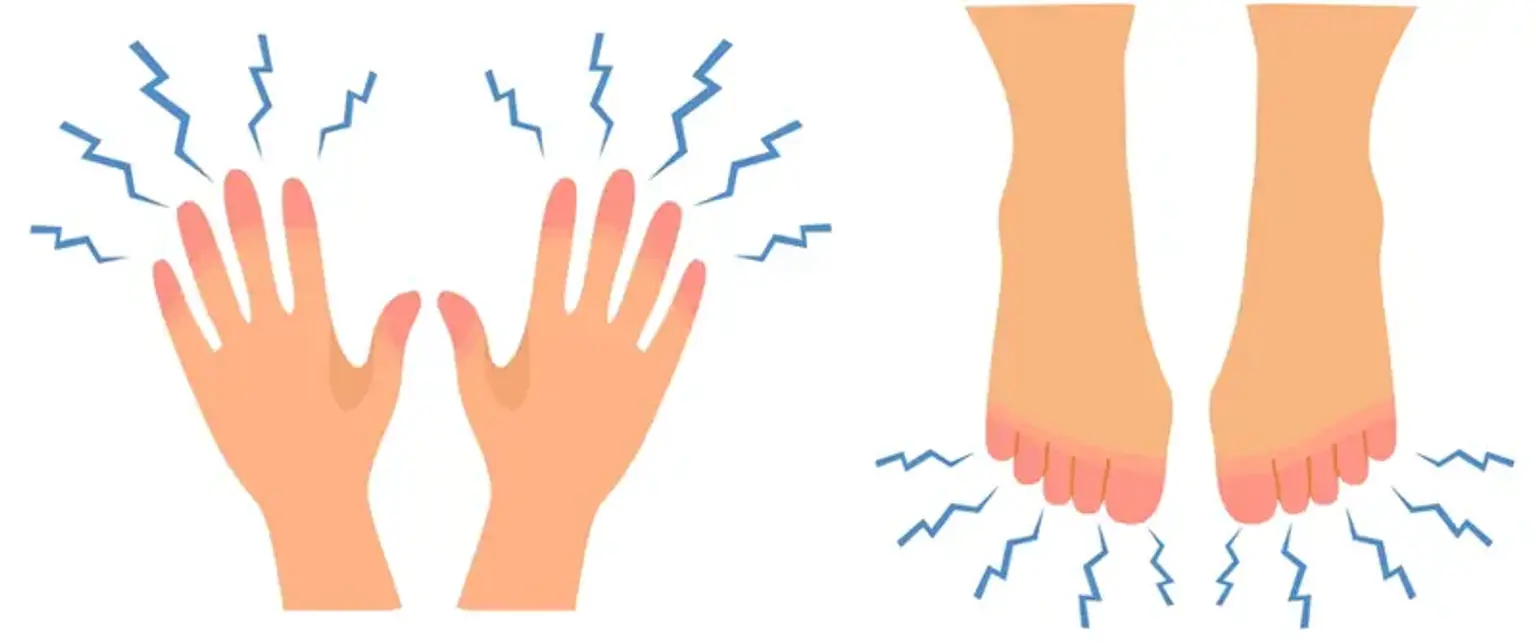Numbness of hands and feet
Overview
It is not uncommon to have tingling in the hands and feet on occasion. However, if the tingling feeling persists or happens regularly, it's worth discussing it with your doctor and learning more about the probable reasons.
